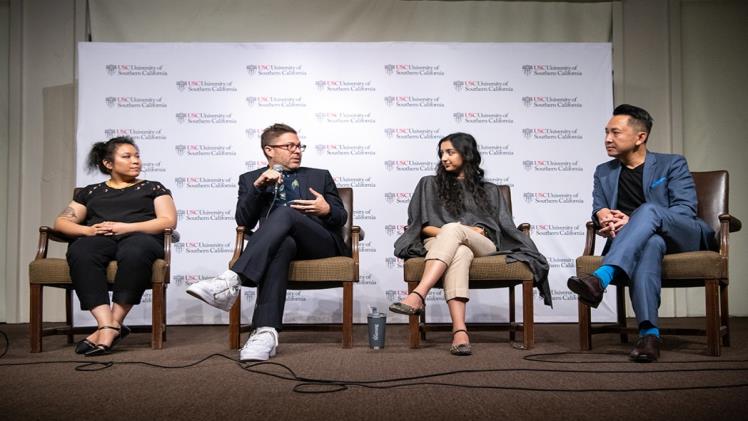The conversation surrounding cultural appropriation and appreciation has gained significant prominence in recent years, highlighting the importance of respectful exchange and celebration of diverse cultures.
Understanding Cultural Appropriation:
Cultural appropriation is the act of adopting, borrowing, or imitating elements from another culture without a genuine understanding, respect, or proper context. It often involves taking sacred symbols, clothing, hairstyles, or practices and using them in a manner that disregards their cultural significance or perpetuates harmful stereotypes.
The Negative Impact:
The consequences of cultural appropriation can be far-reaching. It can perpetuate harmful stereotypes, erode the historical and cultural significance of practices, and exploit cultural elements for personal gain or profit. Cultural appropriation contributes to the commodification of culture, reinforces power imbalances between dominant and marginalized groups, and leads to the erasure of authentic voices and narratives.
Defining Cultural Appreciation:
Cultural appreciation, in contrast, involves genuine admiration, respect, and understanding of different cultures. It acknowledges the contributions and significance of cultural practices, traditions, and art forms without appropriating or misrepresenting them. Cultural appreciation promotes cross-cultural learning, dialogue, and the building of bridges of understanding.
Engaging in Cultural Exchange:
Cultural appreciation encourages meaningful cultural exchanges rooted in respect, curiosity, and education. It involves seeking knowledge, actively listening to the voices of the community, and celebrating cultural diversity through collaboration, shared experiences, and genuine connections. Engaging in cultural exchange fosters mutual understanding, dismantles stereotypes, and promotes a more inclusive society.
Navigating Boundaries with Respect:
Educating oneself about the history, context, and significance of cultural practices is fundamental to avoiding cultural appropriation. Taking the time to understand the meaning behind symbols, clothing, rituals, or artistic expressions fosters respect and prevents unintentional appropriation. It is essential to approach cultural exploration with an open mind and a commitment to learning.
Collaborative Partnerships and Representation:
When organizing events or participating in cultural activities, it is crucial to prioritize inclusive and authentic representation. Collaborating with cultural practitioners, artists, and community members ensures that events are respectful, accurate, and reflective of the cultural traditions being celebrated. By involving the community directly, cultural representation becomes more authentic and meaningful.
Tixel: Exploring Culturally Diverse Events:
Platforms like Tixel offer a diverse range of events that authentically showcase various cultures. From music festivals to art exhibitions, Tixel provides a space to discover and attend performances that embrace cultural appreciation. Through Tixel’s extensive event listings, individuals have the opportunity to engage with events that celebrate cultural diversity and provide a platform for artists and performers to share their heritage and talents.
The Importance of Intention and Respect:
Cultural appreciation is rooted in intention and respect. It requires actively challenging stereotypes, avoiding cultural misappropriation, and recognizing the privilege and power dynamics at play. By approaching cultural exchange with humility, open-mindedness, and a willingness to listen and learn, we foster an environment of inclusivity and promote cultural appreciation in its truest form.
Understanding the distinction between cultural appropriation and appreciation is vital in fostering a society that celebrates diversity, respects cultural heritage, and promotes inclusivity. Through meaningful cultural exchanges, education, and representation, we can navigate the boundaries with respect and create spaces that honor and appreciate the richness of our shared global heritage while promoting inclusivity. By engaging in authentic cultural exchanges, actively learning about different cultures, and celebrating diversity, we can cultivate a society that values and respects cultural heritage.
Moreover, Tixel’s commitment to ensuring a safe and secure ticketing experience aligns with the principles of cultural respect and fairness. By verifying the legitimacy of tickets and providing a transparent and reliable resale platform, Tixel supports ethical event attendance and fosters an environment where cultural events can be enjoyed by all.
In conclusion, the distinction between cultural appropriation and appreciation is essential in building a society that values diversity, respects cultural heritage, and promotes inclusivity. By understanding the impact of our actions, actively learning about different cultures, and engaging in meaningful cultural exchanges, we can foster an environment of mutual respect and appreciation. With platforms like Tixel, we can not only explore culturally diverse events but also ensure that our participation aligns with the principles of cultural respect and fairness. Let us embrace cultural appreciation, celebrate diversity, and create a more inclusive world for all.

